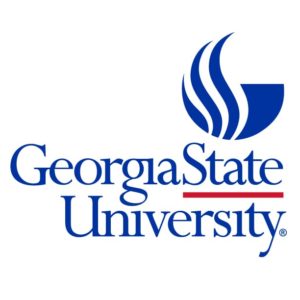The Georgia State University Masters in Finance program has been great with providing student reviews and perspectives of the program. These are some of the most helpful things a person who is considering the program can read about. The review I have today is from a graduate a number of years ago, giving a perspective of someone who has been in the work force for a little bit. Hope you find it useful.
—
Alum in the Spotlight
Thomas Akgun (MS, 2019)
Senior Analyst, DocuSign
Why did you choose to pursue the MS Finance degree and why Robinson?
I chose to pursue a MS in Finance degree to get a targeted focus in Finance after having completed a much broader bachelor’s in business administration. At the time, I believed that obtaining a theoretical foundation in core financial concepts that involved mathematics, corporate finance, markets, investments, financial analysis, etc., would give me the analytical skillset and business acumen highly sought after in Corporate America.
I was highly interested in pursuing my degree at Robinson, particularly for its broad course curriculum, diverse student mix, impressive faculty credentials, and close proximity to (what is becoming) one of the major business hubs in the United States.
What experiences or classes stick out in your mind four years after graduating?
A couple of classes stick out in my mind that even years after graduating have a significant impact on my career. The “Leading the Finance Function” class, led by Beatty D’Alessandro, taught me how to derive quick, insightful conclusions and effectively communicate/present those to individuals who may not have a technical background. In my current role, key business decisions are often made based on analyses my team conducts, thus, relaying key findings and insights effectively to leadership is a critical skill in my role.
Additionally, I also enjoyed hearing from industry-leading guest speakers with backgrounds in banking, corporate finance, asset management, etc., which proved to be great networking opportunities. Second, the Valuation of Financial Assets class led by Dr. Omesh Kini taught me the core fundamentals of how to value financial instruments, such as equity and bonds/loans. As a former Valuation/M&A specialist, this class, in particular, had a major impact on my career. Having an understanding of valuation principles/processes and how this impacts stockholder wealth (as reflected in a stock price) is critical for corporate/finance managers. As a result, valuations are often used as powerful drivers of how to manage the business and track the effectiveness of strategic decisions.
In recent years, the MS Finance program has added courses in financial data analytics, FinTech, and blockchain. How do you see these trends influencing your professional activities going forward? How can students harness skills related to these areas to be better finance professionals?
While digital transformation was already a core initiative for many organizations, the pandemic has significantly accelerated this transition. Many traditional business processes (predominantly in Finance) now have a digital component to them. As these trends are expected to continue, finance professionals who are able to use visualization tools such as PowerBi or Tableau and query languages such as SQL or Python will possess a significant advantage over those who cannot.
What advice can you offer a student just entering the program on how to get the most out of the experience? Best prepare for a subsequent career?
My advice would be to take advantage of all resources provided by Robinson and the Finance program in particular. I was fortunate enough to have a chance to learn from industry experts by attending all the networking events hosted by the university. Additionally, having such a diverse group of classmates presents a unique opportunity to collaborate with peers who are at different stages in their careers and build long-lasting relationships with people from all over the globe. Finally, most of my former professors
have either written multiple published papers or have “practical experience” in finance. This again is an incredible opportunity for those either starting or pivoting their careers to gain insights from academic and industry experts.
–
Here is a link to the Georgia State University Masters in Finance Program



